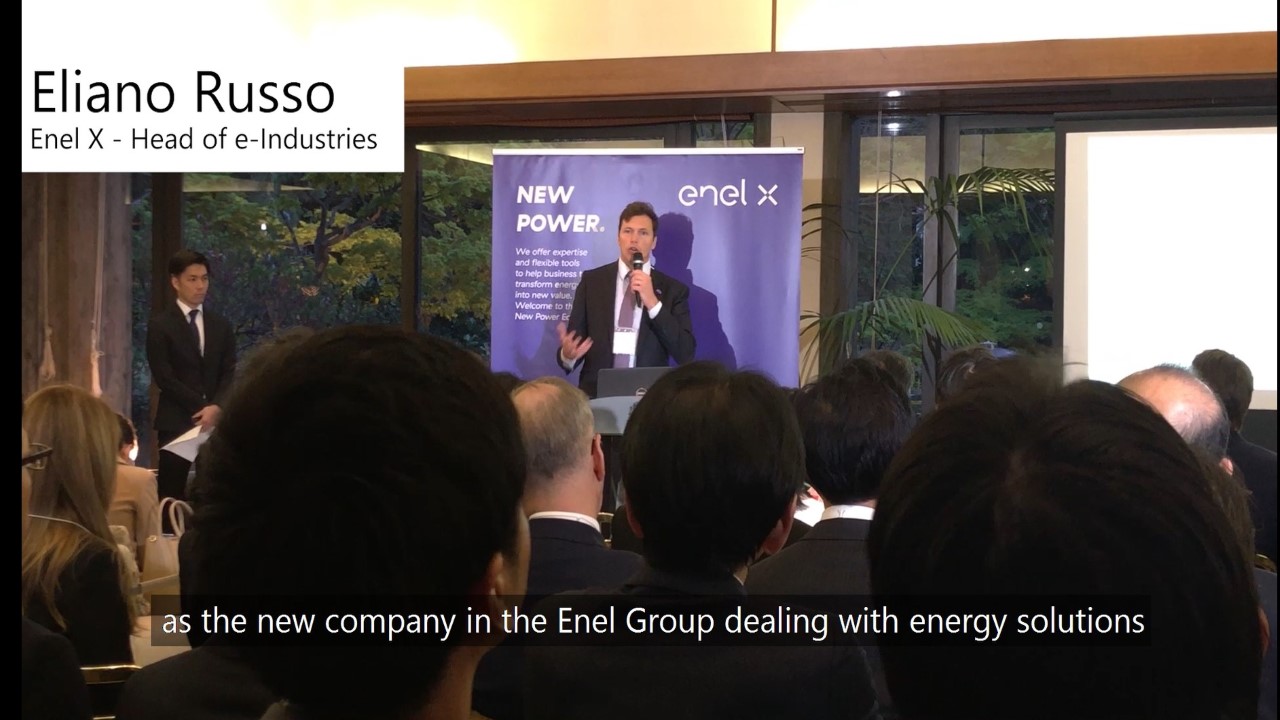Rome and Tokyo, April 15th, 2019 – Enel X, the Enel Group’s advanced energy services business unit, announced that its Japanese subsidiary EnerNOC Japan, has been rebranded to Enel X Japan. The launch event, hosted at the Italian Embassy in Tokyo, saw the participation of Ambassador of Italy to Japan, His Excellency Mr. Giorgio Starace, esteemed Professor Hideo Ishii of Waseda University, Enel X Head of e-Industries Eliano Russo, and Head of Enel X Asia and Oceania Jeff Renaud, as well as European Business Council in Japan Chairman Michael Mroczek.
“It is an honor to host the launch event of Enel X in Japan. Italy is one of the most committed countries in the field of renewable energy: a high percentage of our yearly energy production comes from renewable sources. Enel X has a leading position in the international market, with its innovative and sustainable solutions in improving grid security and efficiency,” said his Excellency, Mr. Giorgio Starace, Ambassador of Italy to Japan.
“With the launch of Enel X in Japan, we are embarking upon a journey whereby we are developing our company into an integrated provider of advanced energy solutions, such as battery storage, distributed renewable generation and electric mobility,” said Eliano Russo, Head of e-Industries for Enel X. “The rebranding comes at an important time as the Japanese market is undergoing extensive changes due to the increasing penetration of renewables as well as ongoing electricity market reforms, which together are creating a lot of room for businesses to change how they power their operations, opening up opportunities for additional value creation.”
Enel X is currently the largest independent demand response aggregator in Japan. Demand response programs see end users to adjust their power consumption to help stabilise the electricity grid when required by the system. Demand response ensures greater grid flexibility that can lead to more efficient use of energy infrastructure, helping to guarantee grid security. Participants are rewarded for the capacity provided.









